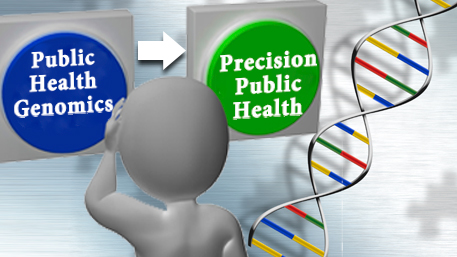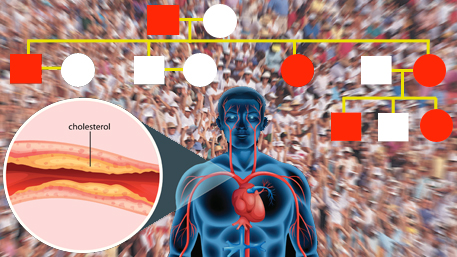Search Results
10 results for implementation science
The use of polygenic risk scores in clinical practice can exacerbate health disparities in ethnic and minority populations

This blog is a summary of our recent commentary on polygenic risk scores (PRS). PRS provide a rapidly emerging example of precision medicine and are based on multiple gene variants that each have weak associations with disease risks, but collectively may enhance disease predictive value in the population. The added value of PRS is unclear
Posted on by 1 CommentResearch on the Behavioral Impact of Polygenic Risk Scores: The Train Has Already Left the Station!

There has been a lot of discussion recently about the new generation of polygenic risk scores (information about a person’s disease risk based on many dozens, hundreds, thousands, or even millions of common DNA variants in their genome), and whether these new-and-improved genetic risk scores are going to turn out to be useful for disease
Posted on byPublic Health Genomics: What’s Next?

In the 1990’s, the excitement surrounding the Human Genome Project led the public health community to plan for the future role of genomics in health care and disease prevention. The field of public health genomics was launched to identify opportunities for the new science to impact health, inform public health programs and health care providers
Posted on byContributions of Public Health in Reducing the Population Burden of Familial Hypercholesterolemia: Challenges and Opportunities

In October 2018, we attended the fifth annual Global Familial Hypercholesterolemia (FH) Summit. This gathering of more than 300 people from over 30 countries included patients, researchers, government organizations, practitioners, health systems, implementation science experts, and industry. The event focused on methods for accelerating uptake of evidence into clinical practice and health policy. The event
Posted on by 1 Comment2018 Yearlong Seminar Series in Public Health Genomics

Advances in genomics, bioinformatics and other technologies are ushering a new era of precision medicine and precision public health. Human genome sequencing is increasingly used in a variety of health systems in the United States and globally. Pathogen genomic sequencing is been rapidly integrated into clinical and public health research and practice. 2018 marked 20
Posted on by 1 CommentCan Genetic Risk Scores Score a Win for Precision Prevention? Time and Rigorous Studies Will Tell

In May 2018, CDC’s Office of Public Health Genomics, the National Cancer Institute’s Division of Cancer Control and Population Sciences, and the National Heart, Lung, and Blood Institute’s Center for Translation Research and Implementation Science held a special webinar titled: “Using Genetic Risk Scores in the Prevention and Control of Common Diseases: Opportunities and Challenges.”
Posted on byGenomics and Population Health Action: The Collaboration Continues!

In March 2018, I attended the third annual meeting of leaders of the Genomics and Population Health Action Collaborative (GPHAC). GPHAC was formed late in 2015 under the auspices of the National Academy of Medicine’s Roundtable on Genomics and Precision Health to foster collaboration of more than 50 diverse stakeholders, including state public health programs,
Posted on bySaving a Million Hearts: One Heart at a Time!

Cardiovascular disease (CVD), principally ischemic heart disease and stroke, remains the leading cause of U.S. deaths for men and women and all races and ethnicities in spite of major progress in its prevention and treatment. CVD is also the greatest contributor to racial disparities in life expectancy. In 2012, 120 public and private partners and
Posted on byProgress in Public Health Genomics Depends on Measuring Population Level Outcomes

Public health genomics is a relatively young field concerned with the effective and responsible translation of genomic science into population health benefits. In the past few years, the field has witnessed the emergence of several state public health genomics programs beyond the traditional domain of newborn screening. The field has focused on preventing disease and
Posted on byHappy Holidays! Celebrating the Arrival of 2018 and 20 Years of Public Health Genomics!

This December, we are especially excited as we anticipate the dawning of a bright new year. The ebbing of 2017 marks the end of, not just another year, but two decades of public health genomics. Recently we were provided two valuable opportunities to place a capstone on this important milestone. Last month, at the American
Posted on by

